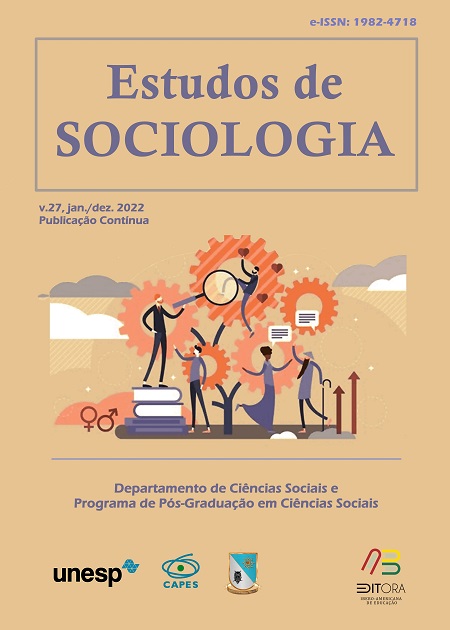O polo de confecções do Agreste Pernambucano
Origens e configurações atuais
DOI:
https://doi.org/10.52780/res.v27i00.13897Palavras-chave:
Polo de confecções do Agreste Pernambucano, Informalidade, Trabalho autônomo, EmpreendedorismoResumo
Este artigo discute o histórico de formação do Polo de Confecções do Agreste Pernambucano e suas relações com as configurações atuais desse território produtivo. Procuramos traçar o percurso de um território que superou as crises econômicas provocadas pelo declínio da produção rural – principalmente em razão das grandes secas na região – e hoje aparece como um dos principais centros de produção de confecções e comércio popular do Brasil. A partir de pesquisa realizada entre 2017 e início de 2020 – com visitas a unidades produtivas, realização de entrevistas com trabalhadores e empresários e levantamento de dados sobre a indústria de confecções local –, buscamos discutir a organização produtiva do Polo e as percepções dos trabalhadores em relação à valorização do trabalho autônomo, ainda que na informalidade. Argumentamos que, forjadas na dialética entre privação e inventividade, as configurações atuais do Polo e seu poder de competitividade residem, em grande medida, na homologia entre as disposições fundadas num “imperativo da independência”, relacionado ao histórico da região, e a lógica neoliberal contemporânea da responsabilização individual, cuja sustentação material se verifica em formas flexíveis e intensas de trabalho autônomo e informal.
Downloads
Downloads
Publicado
Como Citar
Edição
Seção
Licença

À revista Estudos de Sociologia ficam reservados os direitos autorais pertinentes a todos os artigos nela publicados.
Os artigos publicados e as referências citadas na revista Estudos de Sociologia são de inteira responsabilidade de seus autores.
A Estudos de Socilogia utiliza a licença https://creativecommons.org/licenses/by/4.0/ (CC BY), que permite o compartilhamento do artigo com o reconhecimento da autoria.



